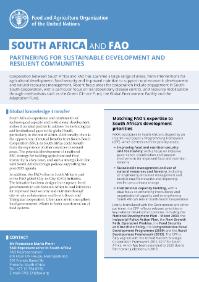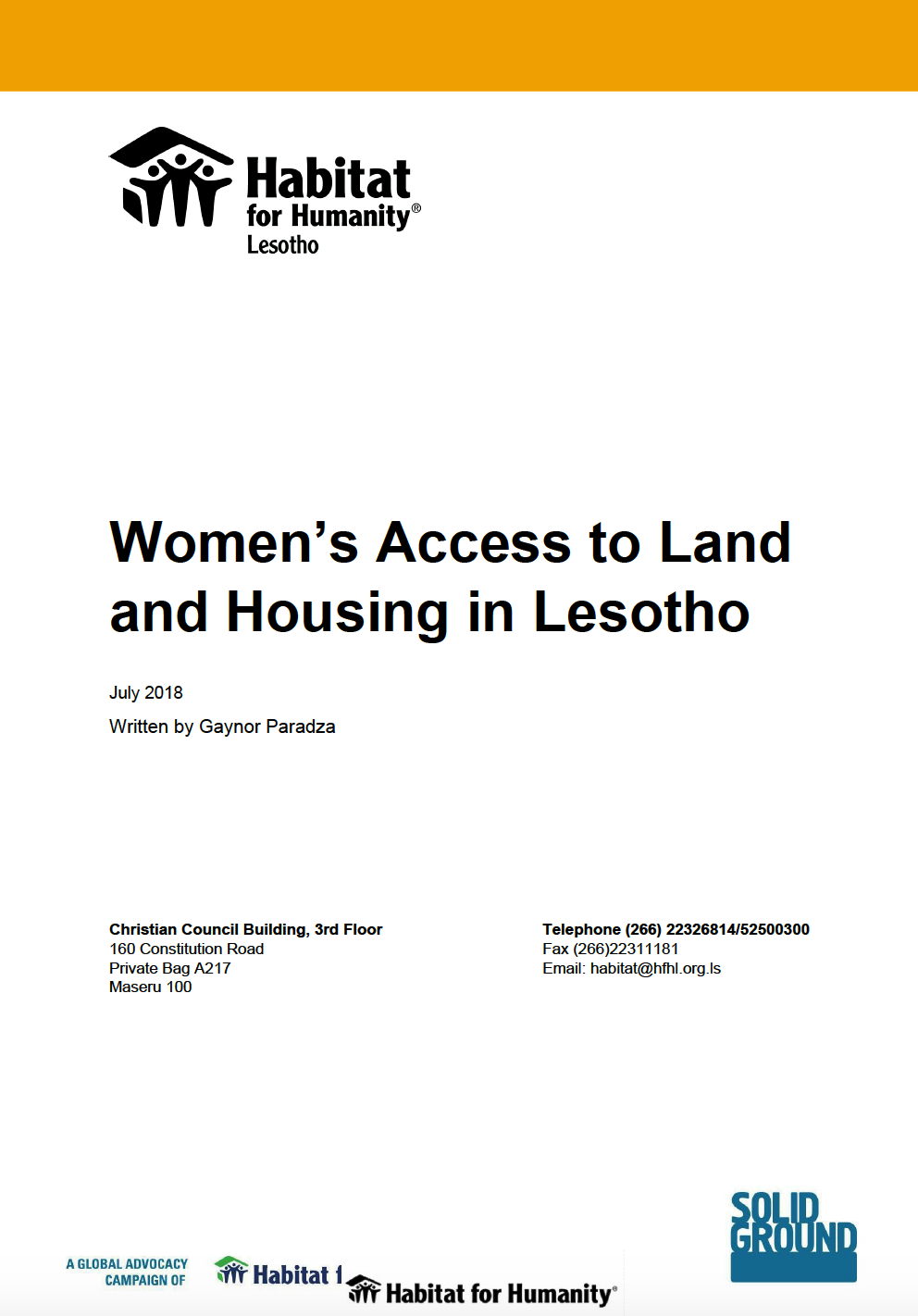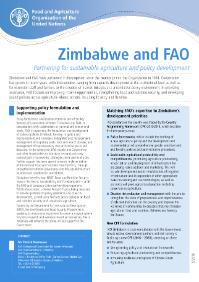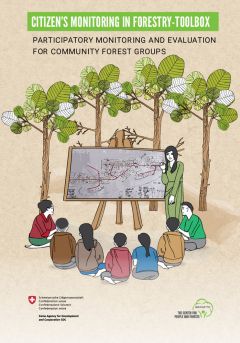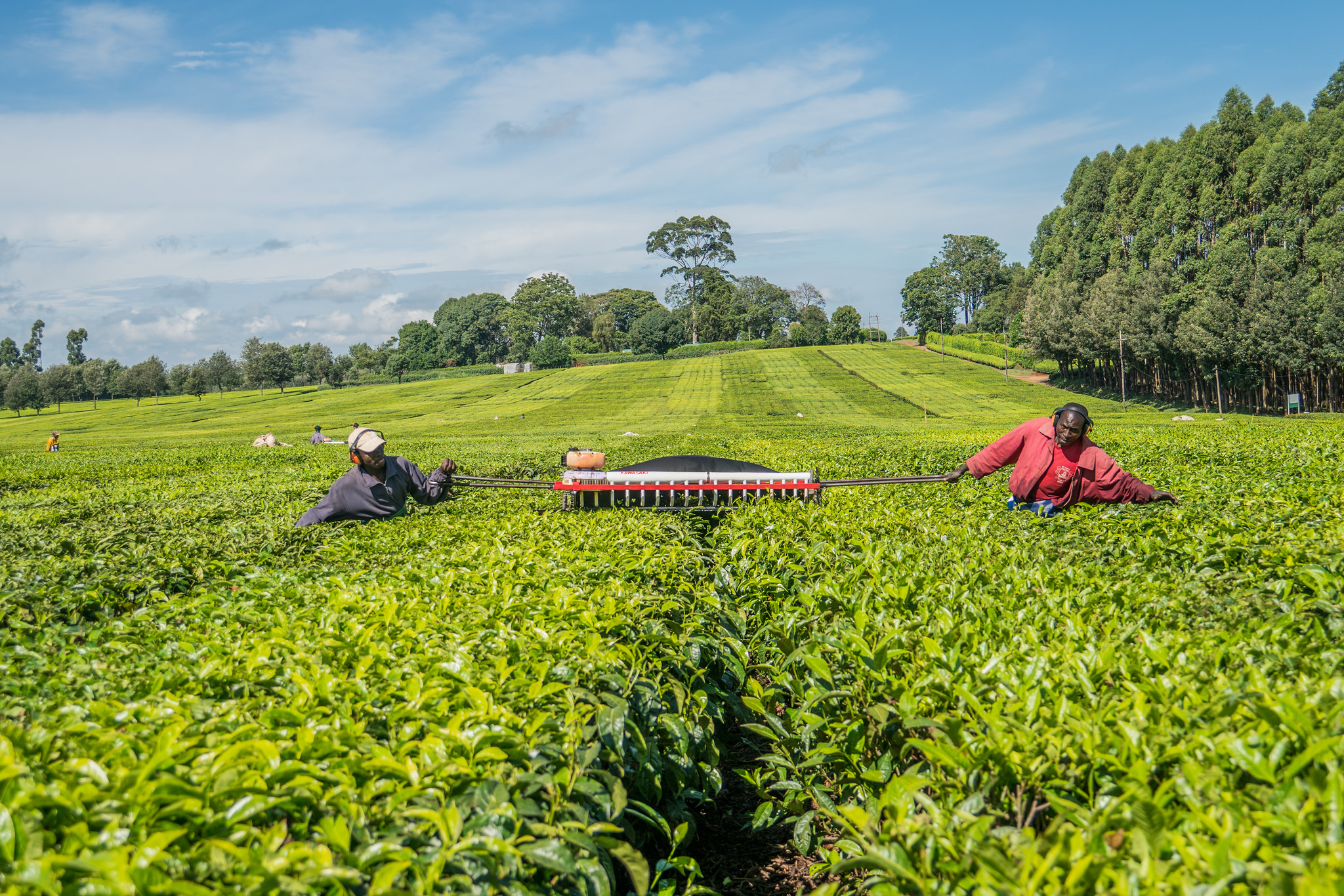South Africa and FAO
Cooperation between South Africa and FAO has spanned a large range of areas, from interventions for agricultural development, food security and improved nutrition to support rural economic development and natural resources management. Recent focus areas for cooperation include engagement in SouthSouth Cooperation, with a particular focus on transboundary disease control, and resource mobilization through mechanisms such as the Green Climate Fund, the Global Environment Facility and the Adaptation Fund.

